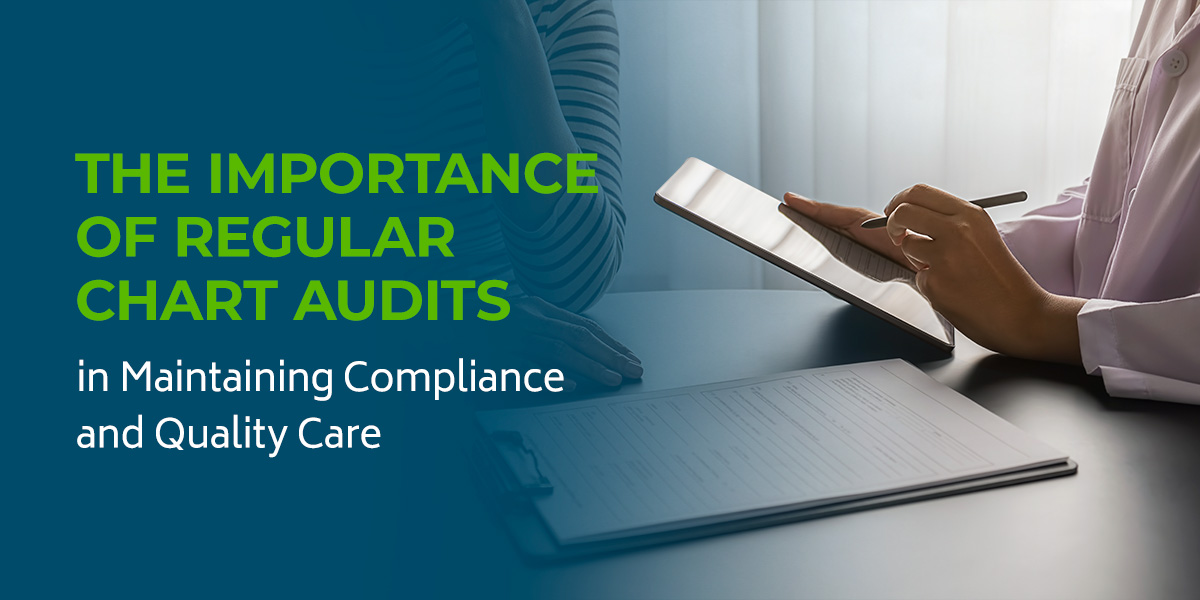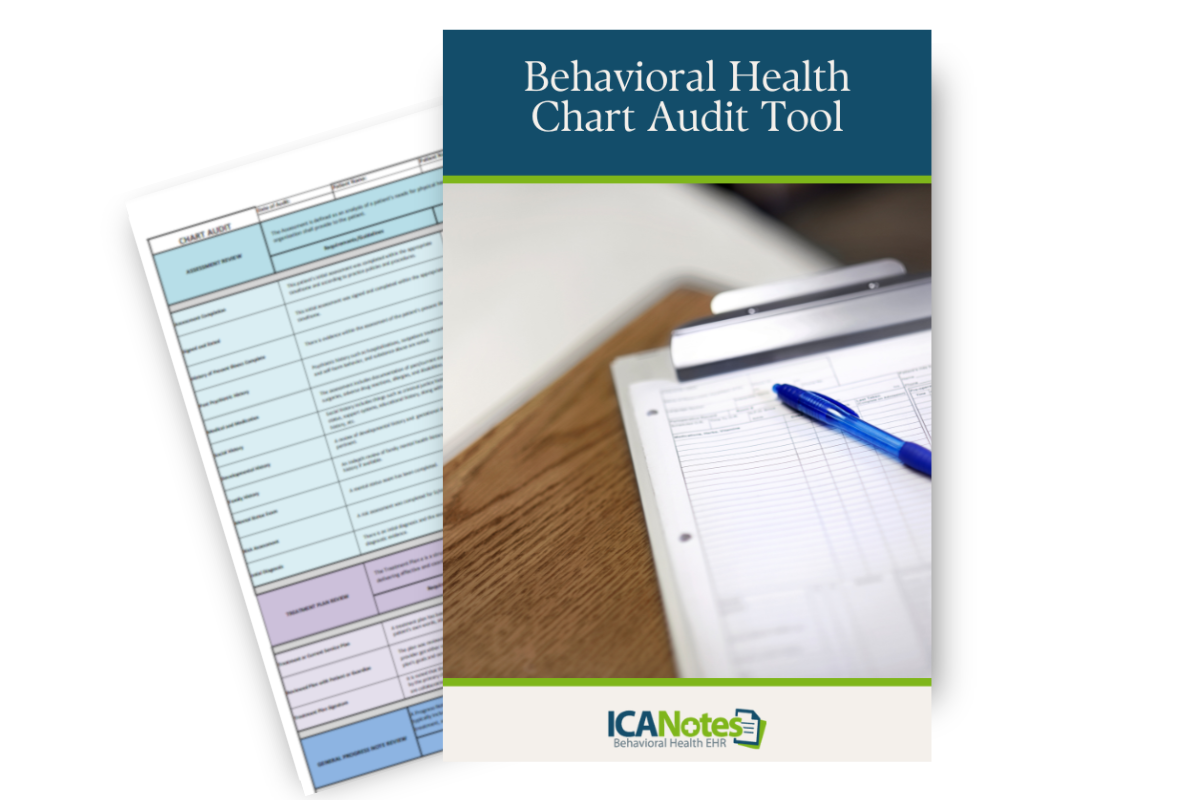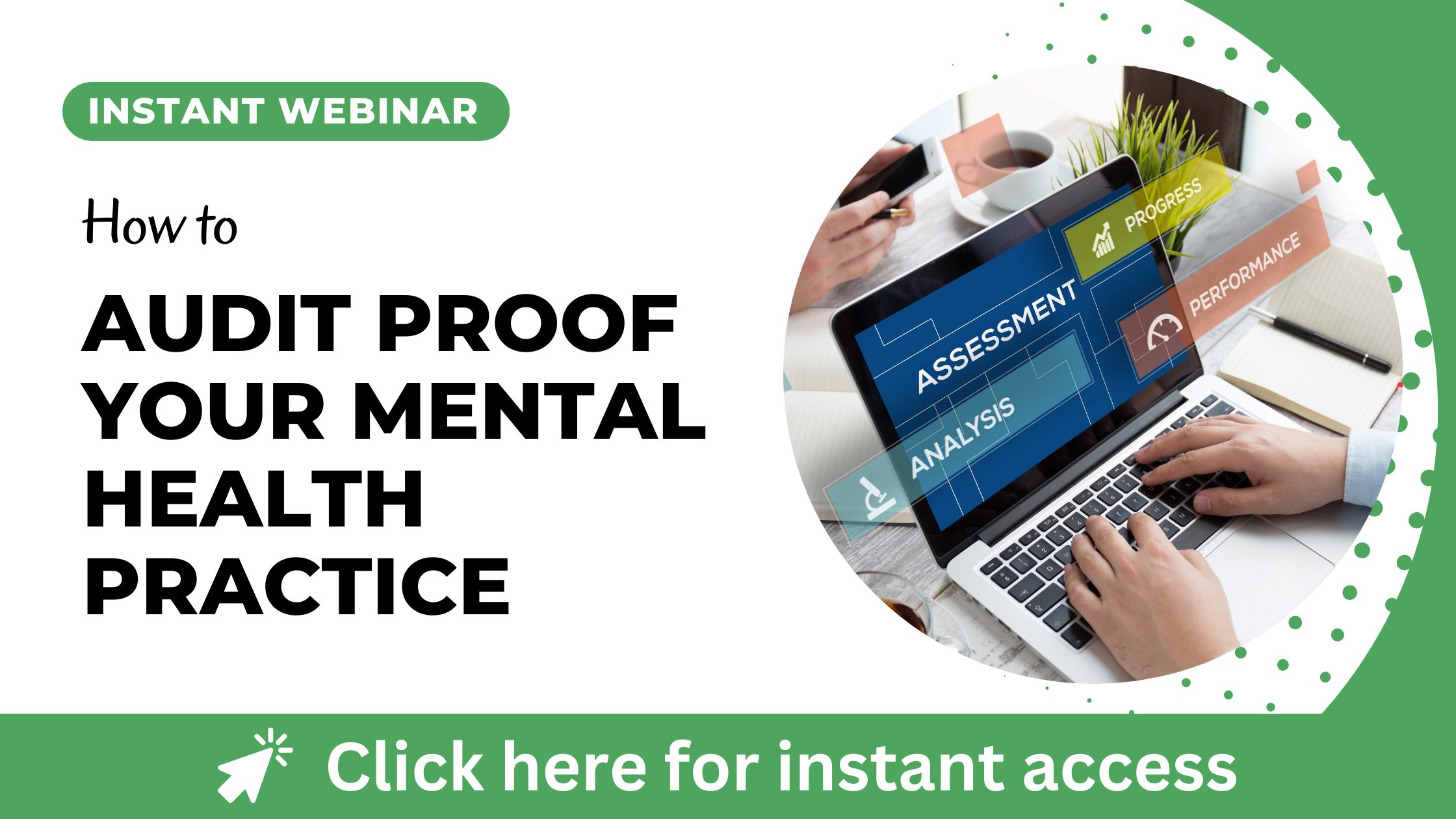
Improve Compliance with Behavioral Health Chart Audits
Updating patient charts is an essential part of providing behavioral and mental health care. Using a behavioral health chart audit tool ensures your practice's documentation processes meet high standards and comply with important industry regulations. Regular audits are crucial for maintaining quality documentation.
This resource will help you understand the importance of regular chart audits and key strategies for delivering the highest quality of care while meeting key regulations. By using our downloadable mental health chart audit tool template, you can streamline your auditing process and ensure thorough and compliant documentation practices.
FREE Download: Behavioral Health Chart Audit Tool

Understanding Chart Audits in Mental and Behavioral Health
Behavioral health practitioners are responsible for documenting each patient encounter in a uniform, accurate and comprehensive manner. Care providers must track all essential information in their patient's chart from an individual's first appointment to discharge. In addition to passing an audit, extensive health documentation has multiple critical functions:
- Providing full diagnostic summaries
- Keeping patient records updated
- Monitoring treatment progress
- Acting as a collaborative tool
Audits may take place to ensure your practice's charting processes align and comply with the 21st Century Cure Act. The act, which was signed into law in 2016, mandates all electronic health information to be easily and quickly accessible for patients. Following behavioral health charting best practices is key to keeping clinical notes organized and secure.
Auditors may come from state or federal government agencies, such as the Centers for Medicare and Medicaid Services (CMS) or the Office of Inspector General (OIG). Both external and internal audits carried out by your staff help ensure optimized documentation practices.
The Significance of Regular Mental Health Chart Audits
Below are the key reasons why regular chart audits are essential for behavioral and mental health practices:
Minimizing Frustration
Chart audits help ensure patient documentation is clear, comprehensive and accessible. Incomplete or incorrect personal or treatment details can cause a variety of issues, such as miscommunication between care providers or complications with insurance claims. This creates confusion and frustration for your practitioners and patients, impacting your facility's ability to deliver excellent care and experiences.
Plus, poor charting practices are a huge source of wasted time, money and energy for your practice.
Maintaining Legal and Industry Compliance
Regular audits help healthcare organizations meet strict regulatory standards regarding patient documentation. Medical records need to be entirely accurate and up-to-date to pass. If your behavioral and mental health care practitioners do not keep up with compliant chart management, your practice may face serious consequences, including the possibility of financial penalties or lawsuits.
Your organization's ability to maintain legal and industry compliance will reflect positively on your professional reputation among current and prospective patients and other care providers.
Ensuring the Delivery of Top-Quality Care
The ultimate goal of regular chart audits is to ensure your practice's documentation processes enable your care providers to deliver the highest-quality, most impactful treatment plans to your patients. When charting is clear, accurate and accessible, you enable your staff to make the most informed decisions to support optimal health outcomes.
Audits also provide valuable feedback on your organization's performance and can help you identify the areas of improvement to prioritize.
Key Strategies for Staying Compliant and Passing Audits
Once you grasp the importance and significance of regular chart audits for your behavioral and mental health practice, you may wonder how your team can keep documentation practices aligned and compliant with key regulations.
Explore the top strategies for maintaining patient charts that always pass an audit:
1. Build a Culture of Continuous Improvement
Foster open communication and establish a culture that values the principles of continuous improvement. Collect feedback from your staff about any inefficiencies or hurdles they encounter while working through their notes. Regularly review audit findings to determine how and where to implement new changes and enhance your documentation process across your behavioral health practice.
In creating a professional culture dedicated to improvement and quality, you can inspire your team to work more diligently through note-writing.
2. Leverage a Robust Electronic Health Record System
Your practice should use an electronic health record (EHR) system, like ICANotes, designed specifically for the behavioral and mental health specialty. These solutions can streamline nearly every facet of the documentation process while simultaneously enhancing accuracy and facilitating compliance.
Preparing for an audit is nearly effortless with the help of a dynamic EHR system. Some feature a behavioral mental health chart audit form or tool specifically for performing an internal audit. These platforms also enable a simpler, more straightforward auditing process by making your patient data and health information easy to retrieve and analyze.
3. Utilize a Behavioral Health Chart Audit Tool
Using a behavioral or mental health chart audit tool or template can be incredibly helpful in gauging your practice's preparedness for an upcoming external audit. You can use these tools to review your staff's documentation to ensure consistency and compliance.
Even a simple mental health chart review checklist can help your team assess the quality, accuracy and completeness of your patient notes.
4. Provide Staff Training Opportunities
Be sure to offer comprehensive and accessible training opportunities for your mental or behavioral health facility's staff to ensure they are well-versed on documentation requirements, privacy laws, ethical standards and best practices. Ongoing training and education will keep your team on top of compliance, minimizing the potential for violations or mishaps.
Why Trust Us for Quality Mental Health Charting Solutions?
ICANotes has been in business for 25 years and counting. We have decades of experience helping behavioral health organizations and clinicians supercharge how they fill out and manage patient charts with dynamic solutions designed specifically for your industry's unique needs.
Expert clinicians equipped with a deep understanding of the behavioral and mental health industry developed the ICANotes software, enabling our solutions to be highly intuitive and require little training. We are well-versed in charting compliance requirements from CMS, CARF, and the Joint Commission and our solutions can give you peace of mind knowing your documentation will pass scrutiny if audited.
ICANotes provides the most clinically robust charting solutions available for behavioral health professionals. Our team is dedicated to helping organizations like yours achieve more accurate and efficient charting processes to save valuable time and money you can redirect toward providing your patients with outstanding care services.
Sign up for a Free Trial of the Behavioral Health EHR From ICANotes Today
If you are looking to streamline your behavioral or mental health practice's charting and documentation processes, turn to the robust EHR software from ICANotes today.
Our practice management system keeps all your records and charts, from initial assessments to treatment plans to discharge summaries, in one secure location. Care providers can improve compliance and note quality while spending less time writing, organizing and sharing important patient notes. Your practice can also leverage our pre-configured note templates to further simplify and enhance charting practices.
Request a free trial of ICANotes behavioral health software today.




